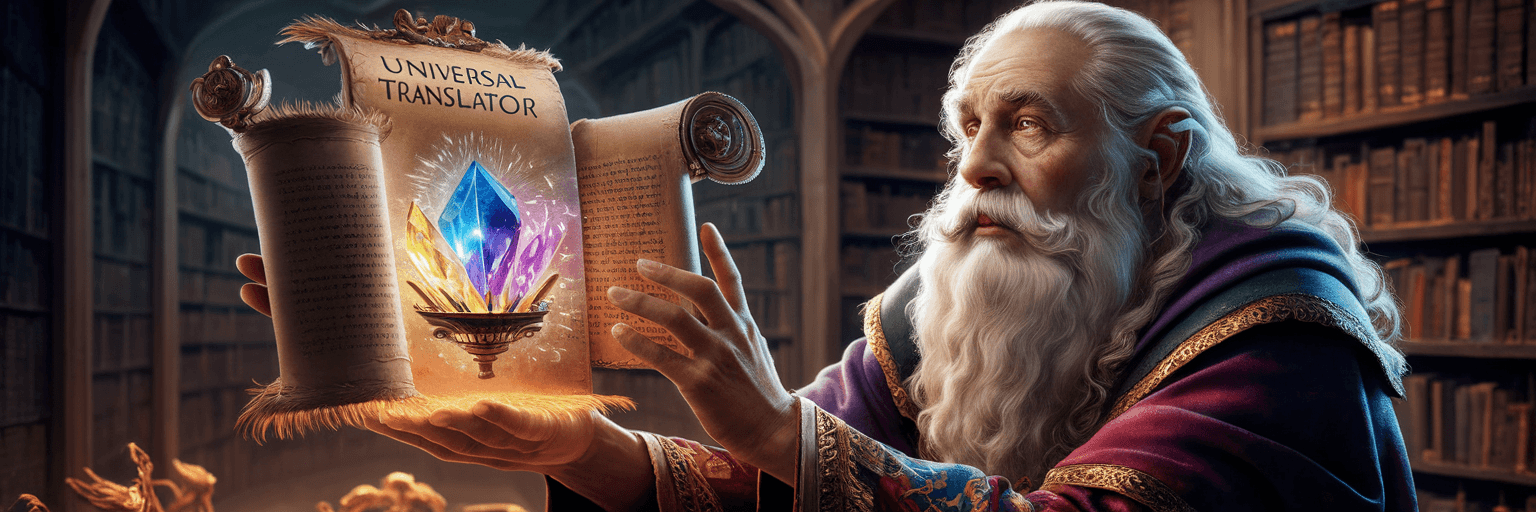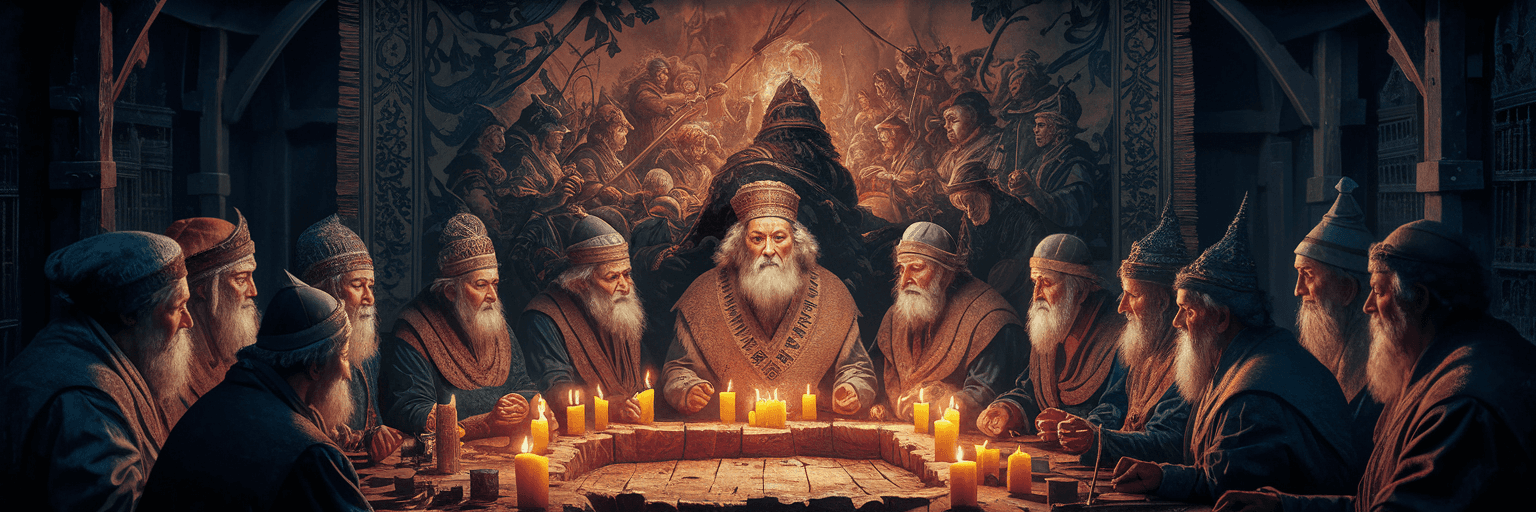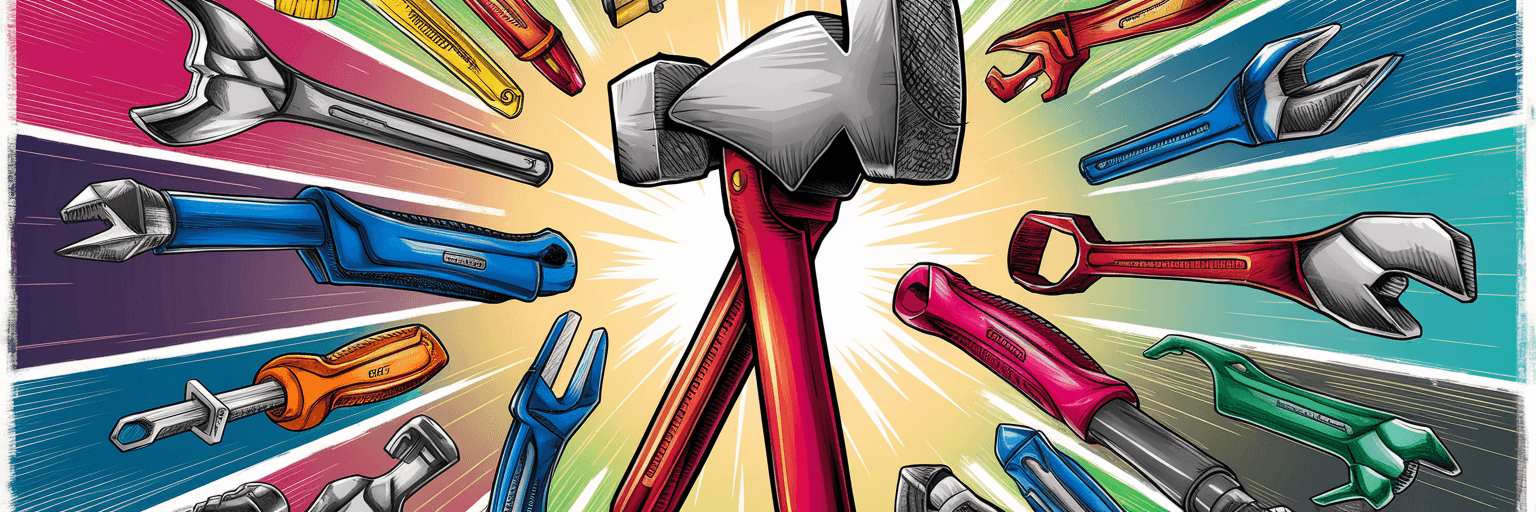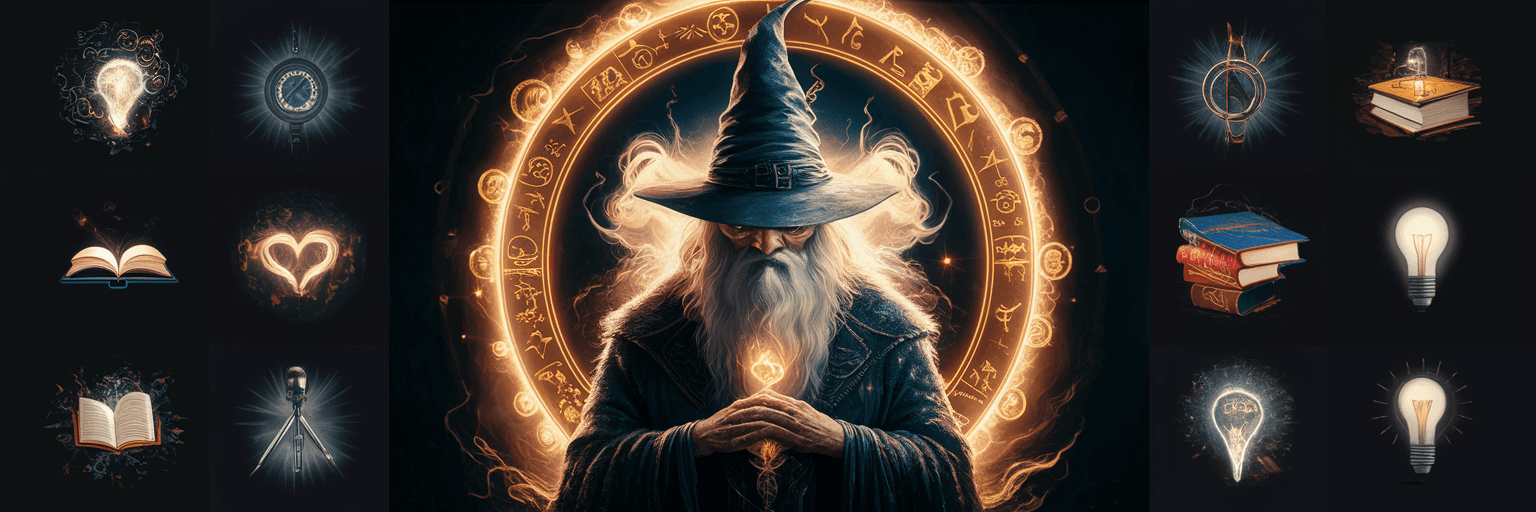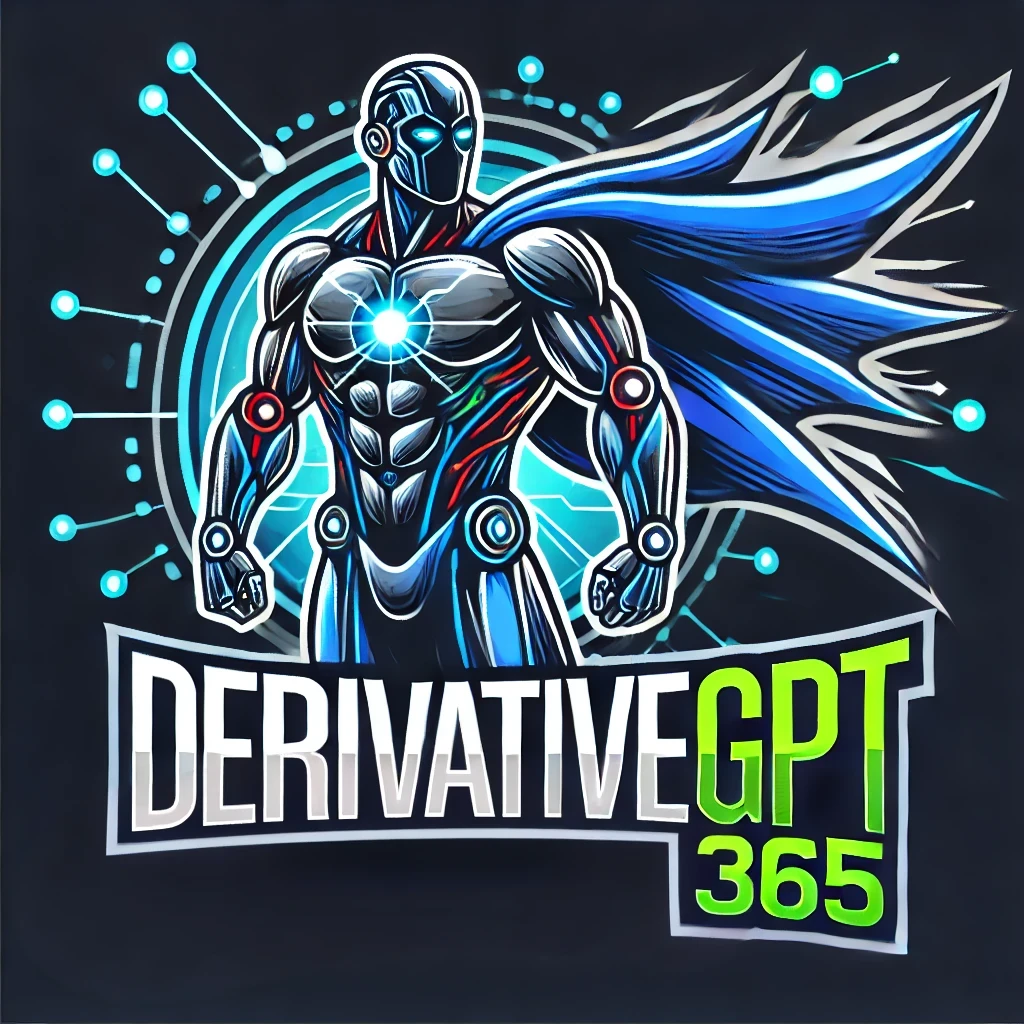AI for Grandma
DerivativeGPT365: Mind of tomorrow
The Future of AI: 6 Detailed Analogies to Help Grandma Understand
The Super-Smart Library Assistant
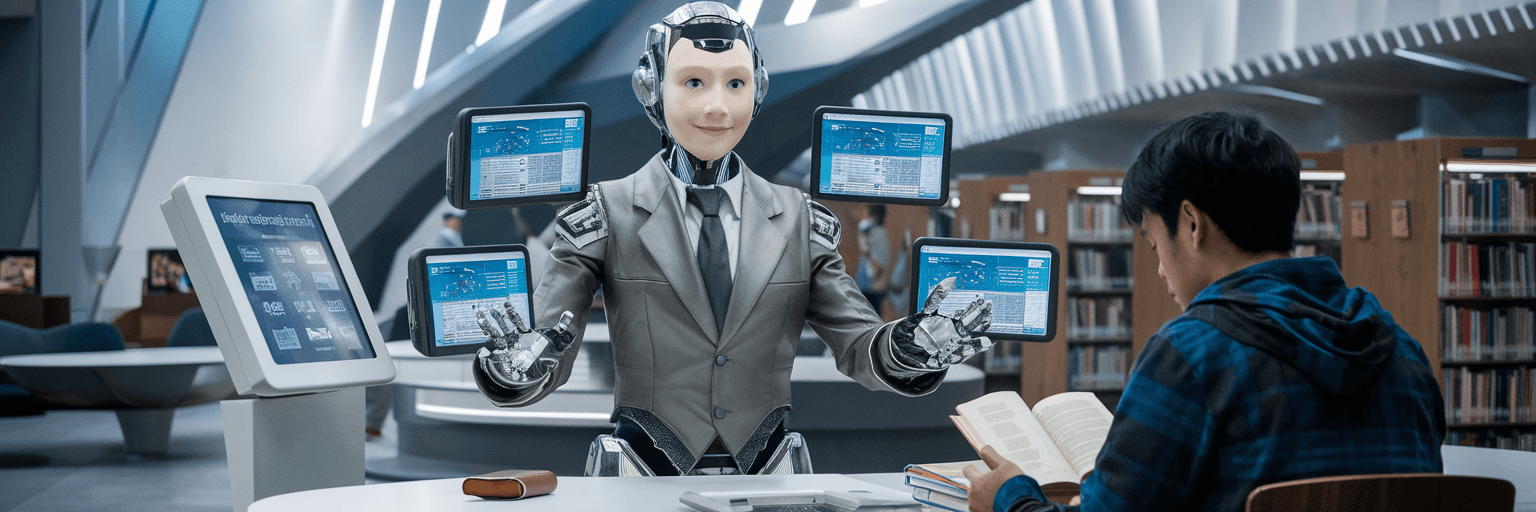
Imagine, Grandma, that you're in a magical library. This library has every book ever written, and it's run by a very special librarian. This librarian has read every single book and remembers everything in them. Not only that, but they can understand how all the information in these books connects to each other.
Now, let's say you ask this librarian a question like, "How can I make my roses bloom better?" The librarian doesn't just give you one book about roses. Instead, they might combine information from a gardening book, a book about soil chemistry, a book about local weather patterns, and even a book about ancient flower-growing techniques. In seconds, they give you the perfect advice for your specific rose garden.
This is what future AI will be like. It will have access to vast amounts of information (like all those books) and will be able to combine this knowledge in clever ways to solve problems or answer questions. It won't just repeat information, but will understand and create new connections, just like our magical librarian.
Benefits:
Quick access to vast amounts of information
Ability to make connections across different fields
Personalized solutions to complex problems
Challenges:
Ensuring the information is accurate and up-to-date
Maintaining privacy and security of information
Balancing AI assistance with human judgment
The Invisible Helper
Remember the stories about helpful house elves or fairies, Grandma? Imagine having a magical helper like that, but one you can't see. This helper knows your routines, preferences, and needs. It's always there, working quietly in the background to make your life easier.
For example, this invisible helper notices that you usually turn up the heat around 7 PM every evening. So, it starts warming the house at 6:45 PM, so it's cozy when you want it to be. It notices when you're running low on milk and adds it to your grocery list. If it spots that you've been coughing more than usual, it might gently suggest you check with your doctor.
This is what AI will be like in the future. It will work behind the scenes, learning your habits and preferences, anticipating your needs, and taking care of little tasks before you even realize they need doing. It's not about replacing human interaction, but about handling small, routine matters so you can focus on the important things in life, like spending time with family or enjoying your hobbies.
Benefits:
Anticipation of needs
Time-saving on routine tasks
Personalized assistance
Challenges:
Maintaining privacy
Avoiding over-reliance on AI
Ensuring AI doesn't make unwanted decisions
The Universal Translator
Think back to when you were young, Grandma. If you met someone who spoke a different language, it was hard to communicate, wasn't it? Now, imagine a magical device that could instantly translate any language. You speak English, and the other person hears it in their language, and vice versa. Wouldn't that be wonderful?
But let's take this idea even further. What if this translator could help you understand not just other languages, but also complex ideas? Imagine it could explain a doctor's complicated medical terms in simple words you understand. Or it could help a farmer understand complex weather patterns to know the best time to plant crops.
This is what future AI will be like. It won't just translate between human languages, but it will help us understand and communicate complex ideas across different fields of knowledge. It could help scientists understand how their work relates to other fields, or help artists find inspiration in scientific concepts. It's like having a universal language for all knowledge.
Benefits:
Breaking down language barriers
Simplifying complex concepts
Fostering understanding across different fields
Challenges:
Maintaining nuances in translation
Avoiding oversimplification of complex ideas
Ensuring cultural context is preserved
The Wise Council
Remember how in the old days, Grandma, villages often had a council of elders? These were wise people with different kinds of knowledge and experience. If someone had a problem, they could go to this council for advice.
Now, imagine a council that includes not just the wisest people from one village, but the smartest and most experienced people from all over the world. This council would have doctors, scientists, artists, philosophers, and experts in every field you can think of. And imagine you could ask this council any question, at any time, and get an answer that combines all of their knowledge.
This is what future AI will be like. It will be like having access to a vast council of experts, available at any time. If you're trying to decide on a medical treatment, it could provide insight combining the latest medical research with understanding of your personal health history. If you're wondering about the best way to save for retirement, it could give advice that considers economic trends, tax laws, and your personal financial situation.
Benefits:
Access to wide-ranging expertise
Ability to consider multiple perspectives
Personalized advice for complex problems
Challenges:
Ensuring the AI's knowledge is current and accurate
Balancing different viewpoints fairly
Remembering the importance of human judgment
The Evolving Recipe Book
Let's think about your old recipe book, Grandma. When you first got it, it probably had simple recipes like how to boil an egg or make toast. Over the years, you've added new recipes you've learned, maybe from friends or cooking shows. You've also made notes on how to improve the recipes, like adding a pinch of salt to make the cookies tastier.
Now, imagine if this recipe book could think for itself. It starts with basic recipes, but then it learns from every meal cooked using its recipes. If a dish turns out too salty, it adjusts the recipe. If people love a particular combination of spices, it remembers that for future recipes. It even starts to create entirely new recipes by combining ideas from different dishes!
This is how future AI will work. It starts with basic knowledge (like simple recipes), but it learns and improves over time based on new information and results. It can take what it learns in one area and apply it to another, just like using a cooking technique from a savory dish to improve a dessert recipe.
Benefits:
Continuous learning and improvement
Ability to create new solutions
Adaptability to changing needs and preferences
Challenges:
Ensuring AI learns from good examples
Maintaining control over AI's evolution
Balancing innovation with reliability
The Shape-Shifting Tool
Think about your favorite kitchen tool, Grandma. Maybe it's a reliable old wooden spoon, or perhaps a modern food processor. Now, imagine a magical tool that could transform into any kitchen tool you need. When you need to stir soup, it becomes a spoon. When you need to chop vegetables, it turns into a sharp knife. When you need to measure flour, it becomes a measuring cup.
Now, let's think bigger. Imagine this tool could change into anything you need, not just for cooking, but for any task. Need to fix a leaky faucet? It becomes a wrench. Want to paint a picture? It turns into a set of brushes. Need to calculate your taxes? It becomes a smart calculator that knows all the tax rules.
This is what future AI will be like. It will be a flexible tool that can adapt to whatever task you need help with. It might help an architect design a building one moment, then help a musician compose a song the next. It could assist a scientist in analyzing complex data, then turn around and help a child learn to read. Just like our magical shape-shifting tool, AI will be able to transform itself to meet our diverse needs.
Benefits:
Versatility in problem-solving
Adaptability to different tasks and industries
Potential to enhance human capabilities in various fields
Challenges:
Ensuring AI remains user-friendly despite its complexity
Avoiding over-reliance on AI for tasks that require human touch
Managing the learning curve for users to effectively utilize AI's versatility
Conclusion
Grandma, the future with AI will be like having a super-smart, invisible helper who can understand and translate complex ideas, learn and improve over time, and adapt to help us with all sorts of tasks.
Just like how you've seen the world change with inventions like telephones, television, and the internet, AI will bring its own big changes. It will help us solve problems we couldn't solve before, learn things we couldn't learn before, and do things we couldn't do before.
But remember, just like any powerful tool, AI will need to be used wisely. We'll need to think carefully about how we use it, make sure it's fair to everyone, and remember the importance of human connections and human judgment.
The future with AI might seem a bit magical or even scary sometimes, but so did many of the technologies we use every day when they were first invented. The key is to approach it with curiosity, wisdom, and always keeping in mind what's best for people and our world.

